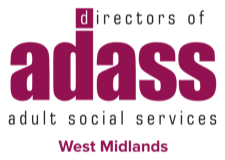This initiative, led by Surrinder Bains Research Champion at BVSC, is designed to deepen engagement with underserved communities through inclusive, community-led research practices. A presentation on the initiative is available in the Resources section of this website.
Recruitment and Training Model
Community researchers are recruited via a database and expressions of interest hosted on the BVSC website. Once selected, they receive structured training that includes:
- Fundamentals of research
- Conducting focus groups
- Data analysis
- Ongoing mentoring
The training is incentivised, paid, and accredited, ensuring accessibility and value for participants.

Co-Production and Research Themes
The model is rooted in co-production, where community researchers collaborate on designing research questions and analysing findings. Key research projects have included:
- Headache disorders in the Pakistani community
- Airborne diseases and stigma
- Work and worklessness across Pakistani, Bangladeshi, Caribbean, and Nigerian communities
- Barriers to infectious disease testing (HIV, Hepatitis B/C, TB)
- Childhood and pregnancy vaccine uptake
Community Engagement and Trust Building
A core strength of the project lies in its commitment to building trust with communities that have historically been underserved or marginalised in research. This includes:
- Regular newsletters, coffee mornings, and drop-ins
- Blogs on lived experience
- Showcasing the work of community researchers
- Working with groups such as the Somalian, Hong Kong, Afghanistan Sikh, and European Bengali communities
Strategic Partnerships and Visibility
The project is supported by partnerships with Birmingham City Council’s Public Health Team, the University of Birmingham, and the NIHR-funded Research Engagement Network (REN). It also contributes to the “Research Better Together” initiative. Community researchers have been mentored and supported to present at events like the Power of Us Conference
Amplifying Research Through ADASS and CHERP

Surrinder is actively working to promote this work through the WM ADASS research development group and the Community Hub for Engagement in Research Practice (CHERP) website. Plans include publishing presentations, testimonials, blogs, and a short video to highlight the impact of community research and its champions.
If you would like to know more about Real People Real Lives please contact
